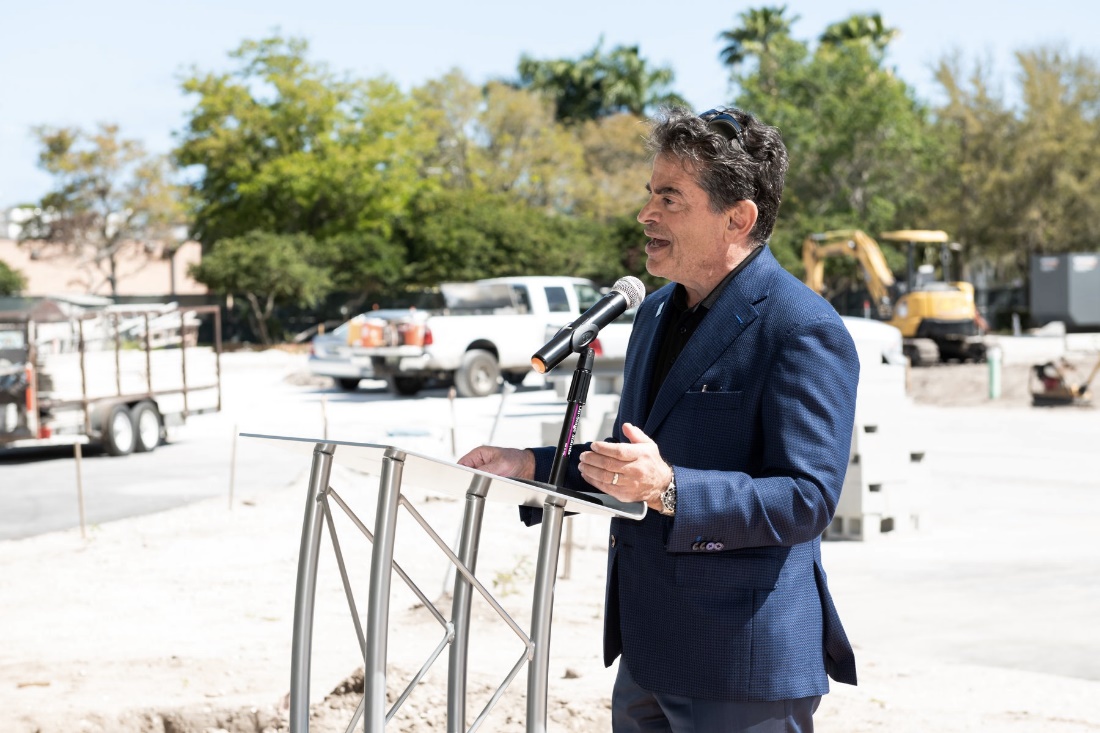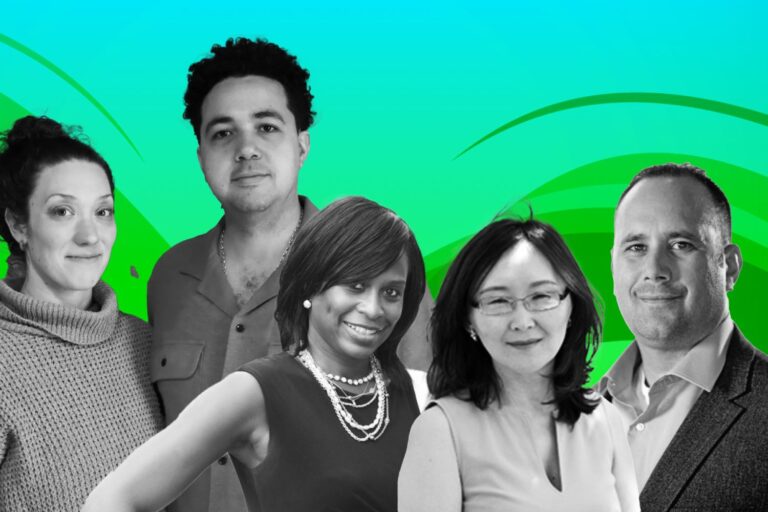How “Know Your Numbers” Makes Kaufman Lynn a Thriver in the Storm
Kaufman Lynn Construction is a full-service commercial construction company established in 1989. It mainly specializes in serving markets like multi-family housing, senior living, or hospitality. In 2020, the firm was named ENR Southeast Contractor of the Year and for four consecutive years, the firm was ranked among ENR’s National Top 400 Contractors and consecutively ranked for 15 years as one of South Florida Business Journal’s Top 25 General Contractors from 2005 to 2019. With more than 200 employees in Florida, North Carolina and Texas, the company is poised for growth under the leadership of Founder and CEO Michael Kaufman. Let’s read on to discover how this company dominates the construction industry in the state.
Opportunity in Adversity
Michael Kaufman has occupied the helm of Kaufman Lynn since the firm’s inception in 1989 and started the business with a solid grounding in the building industry. A graduate of the Rinker School of Building Construction at the University of Florida, Kaufman always planned for a career in the building sector.
Kaufman’s first job after graduating from college was as an estimator at Stiles Construction in Fort Lauderdale, Florida, where he honed his estimating skills, learned the importance of maintaining accurate data and adopted the firm’s commitment to integrity as part of the company brand—all of which he would ultimately bring to the establishment of his own company several years later.
Kaufman went on to serve as vice president of Siegfried Construction in Delray Beach, Florida, where he oversaw the estimating department and served as senior project manager on multifamily, commercial and institutional projects, ranging in value from $500,000 to $16 million. In 1986, he co-founded Haynes Kaufman Construction and served as vice president and chief estimator.
“I started [Kaufman Lynn Construction] after finding myself out of work with a growing family to support during Florida’s economic struggles,” Kaufman said of his unintended leap into self-employment.
“It was the result of adversity and opportunity. I dusted off my tools from college and took on odd jobs for homeowners and commercial property managers while looking for opportunities to break into the commercial, ground-upside of the construction industry,” he added, recalling the first signs of his willingness not to be defined by a particular niche. That flexibility would ultimately help his company grow to be one of Sunshine State’s largest firms, with an annual revenue of more than $300 million.
Kaufman started out as a subcontractor by using a $12,000 loan from his family to purchase supplies and make initial payroll for his small crew. One of his company’s first jobs was as a subcontractor to the general contractor who was building the Hecht Athletic Center at the University of Miami. Kaufman’s crew performed the form placement and structural concrete finish for the building.
Kaufman credits the job which quickly teaches him the importance of accurate crew sizing and maintaining cash flow. “Successful completion of these first projects led to other opportunities,” he explained, “allowing me to steadily build the scope and scale of the company’s work.”
Defying a Niche
For Kaufman, scaling meant being able to work in a variety of market sectors and being able to shift personnel from one type of construction to another seamlessly—no small feat in the construction industry, where firms are often defined by the niches they serve.
Today, Kaufman Lynn’s core markets are unusually diverse and include construction projects in higher education, K-12 education, multifamily, mixed-used and office buildings, and public-sector work that has included parking garages, public safety enterprises and city halls. Of course, that kind of work flexibility also requires the continual hiring of staff and intensive training.
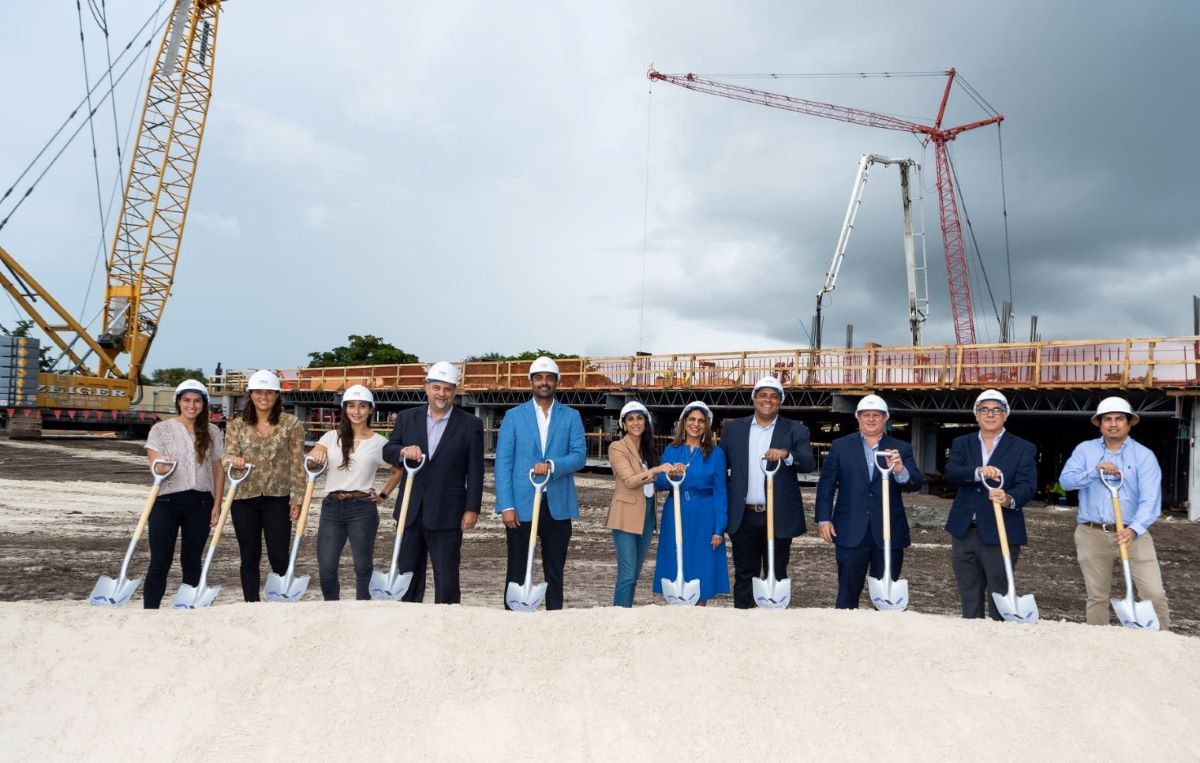
“We look for professionals with a broad background and the flexibility to operate in different construction sectors,” Kaufman explained. Employee training and development is ongoing and includes weekly mentoring sessions and annual performance reviews, both of which are designed to help staff build their skills and knowledge in ways that are beneficial for their personal careers and the company’s growth trajectory as a whole. Kaufman said that professional development often includes assigning lateral moves into a different market sector or rising responsibility within an existing market for staff members.
Speaking to his company’s efforts to operate in many different market sectors, Kaufman said it’s a style of business governance that is “inherently entrepreneurial.” But the risk involved can also seem counterproductive at times. “I developed my set of skills through failure,” he added. “A good failure is—more often than not—a powerful lesson.”
Risk itself is inherent in the construction industry, however. And Kaufman Lynn, like the industry as a whole, felt this powerfully during the Great Recession. “From 2009 to 2010, our revenues dropped by more than 80 percent,” Kaufman recalled. That would be enough to drive even the most stalwart CEOs to abandon ship, but Kaufman held firm and still managed to make a small profit.
“Our response to the 2008 economic downturn exemplifies our willingness to take calculated risks in the face of uncertainty,” he said. “Rather than hunkering down, I recognized an opportunity to break into the next level of construction, which led me to invest in new talent and upgraded systems.” With the small profit the firm garnered during the worst years of the recession, Kaufman Lynn invested in new project-management software and hired a new director of operations for multifamily projects to help the firm further expand its market reach.
“The Kaufman Lynn Construction business model focuses on diversification and agility,” Kaufman explained, and that’s been the firm’s secret to maintaining profit, even during economic downturns. The company works in a variety of public and private markets and adjusts its teams’ tasks with the inevitable ebb and flow of individual markets.
Kaufman said he’s also conscientious about surrounding himself with a team of professionals who share his ability to make fast, yet informed, decisions based on a combination of intuition and market data. “This allows [us] to respond quickly to market changes, taking advantage of pockets of opportunity that are present, even in [times of] adversity.”
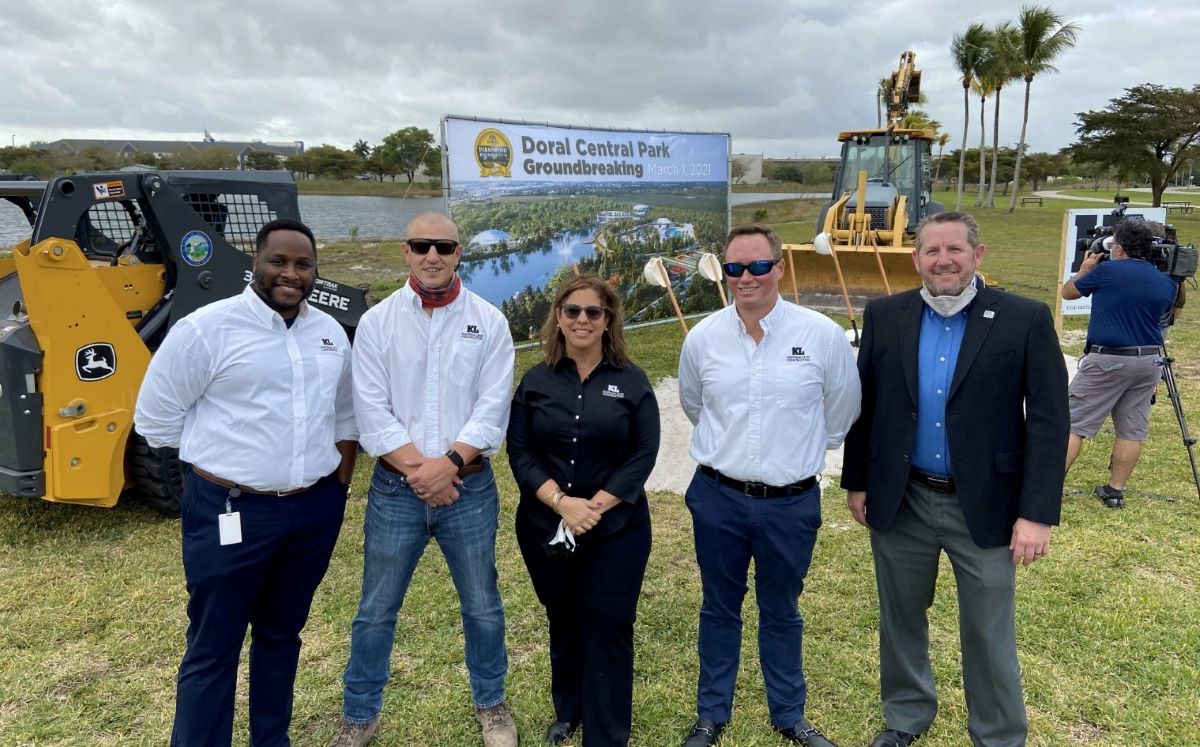
For example, during the recession in 2008, when Kaufman’s team recognized that shifts in housing preferences and the logical outcome of the mortgage meltdown would deplete income in the single-family residential market, they looked to the self-storage market as an opportunity for growth.
Know Your Numbers
There are many dictums for success in the construction industry. And for Mike Kaufman, “know your numbers” ranks right alongside the fundamentals of schedule, safety and project execution.
A self-described economics wonk, Kaufman explains that construction’s inherent performance and financial risks make trustworthy reporting and forecasting a must. “Only then can you make smart decisions about investments in growth, talent, technology and other essentials of good business,” he says.
Perhaps the best evidence of how well that philosophy has served the 31-year-old Delray Beach, Fla.-based firm can be found in the latest results of a strategic plan, crafted in 2016, that outlined goals for organic growth and expansion of the firm’s geographic footprint. Bolstered by strong demand for senior living and multifamily facilities in the firm’s home base of South Florida and an emerging presence with new branches across the peninsula in Naples, Fla., and in North Carolina, Kaufman Lynn’s Southeast revenue topped $480.8 million in 2019, a 73% jump from the previous year. The company’s expansion strategy also included a new branch in Austin, Texas.
CFO Doug Simms says scrutiny of macroeconomic and other trends during the plan’s development helped get the company “uncannily close to the market we projected three years ago.” Balancing the firm’s project mix with public-sector projects has helped as well, Kaufman adds, as did a bit of luck and good timing, particularly when it came to establishing footholds in new markets.
“We saw diversification as a way to provide some protection from the South Florida boom-or-bust cycle,” Kaufman explains. “Going into a new region without existing clients or company leaders is very difficult.”
Kaufman Lynn’s plans to open an office in the promising southwest Florida market received a boost in 2018 when a budding client relationship coincided with a project executive’s desire to move back to the Naples area. Additionally, Kaufman’s 2015 marriage to native North Carolinian retail executive Lisa Kornstein gave him a personal presence in the Tar Heel state before several current developer clients began eyeing opportunities around Charlotte.
“I would love to say it was all a brilliant strategy,” Kaufman says with a laugh, “but our ability to peek around the corner and apply macroeconomic trends to local markets made expansion to those areas very logical.”
Innovation From the Outset
The “know your numbers” philosophy complements Kaufman Lynn’s philosophy of understanding clients’ wants and needs and providing innovation.
Mike Tiufekchiev, vice president of corporate services for JM Family Enterprises Inc., recalls how a Kaufman Lynn suggestion to relocate a proposed new employee training center turned into a full replacement strategy for the aging buildings that made up the automotive and financial services company’s Deerfield Beach, Fla., campus.
“The buildings were outdated, but we’d thought there’d be too many logistics and planning hurdles to keep the campus functioning through the demolition and construction process,” Tiufekchiev says. “Kaufman Lynn worked with us to plan the logistics and phasing and get the process started.”
The design-build program’s nearly complete first phase—which includes two 88,000-sq-ft office buildings, a 29,500-sq-ft, two-story dining facility and a 309,500-sq-ft, six-story parking garage—also provided opportunities for Kaufman Lynn to take JM’s suggestions for environmentally conscious features a few steps further. Innovations include using electrochromic glass as an alternative to combining standard glazing with automated blinds, a stormwater reclamation system and 1.4 megawatts of solar panels atop the buildings.
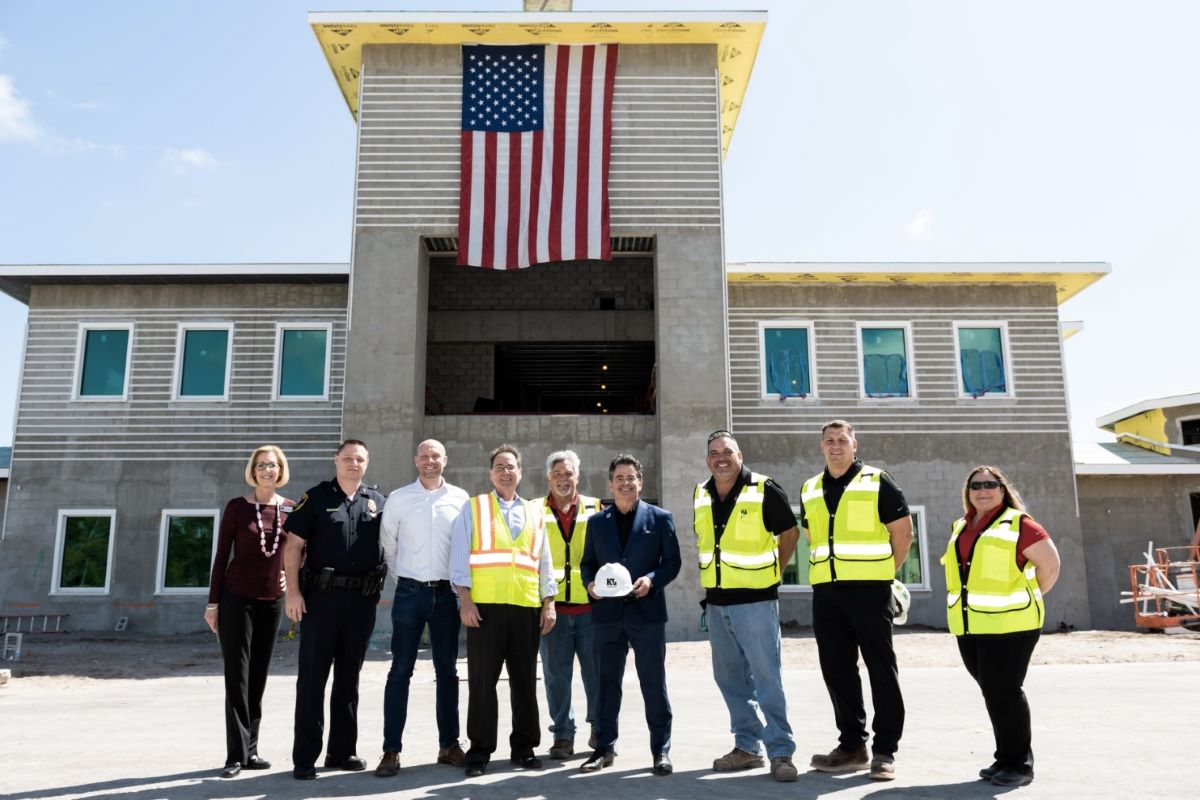
“Because they wanted office space to serve them for at least 50 years, we identified rigid, low-profile access flooring options that support changes to underlying cabling and technology systems,” notes Garrett Southern, Kaufman Lynn’s senior vice president of operations. “It has the feel of normal flooring and maintains height-to-ceiling distance in a more adaptive layout.”
As with most other businesses, JM unexpectedly finds itself studying how workflows altered by the COVID-19 outbreak may influence long-term facility needs and layouts. While the reassessment has put the next phase of facility construction on hold, Kaufman Lynn has come up with plans to turn a gaping space on the campus into a temporary landscaped park with fountains and tensile fabric-covered walkways.
“It’s a great idea and shows the kind of things that come out of true partnerships,” Tiufekchiev says.
Those thoughts are echoed by Rick Slossen, senior vice president of development for Erickson Living, a Maryland-based senior-living developer for the Siena Lakes continuing care and retirement community in Naples. With travel restrictions curtailing his ability to oversee projects in person, “You need a lot of trust when working with a contractor [located] hundreds of miles away,” Slossen says.
That high level of trust with Kaufman Lynn was established early, Slossen says, calling preconstruction budgets for Siena Lakes’ 445,000-sq-ft first phase “mind-boggling in detail.” He also notes that the numbers have been held through what has been a seamless construction process. In addition to awarding Kaufman Lynn the project’s $70-million, 402,500-sq-ft second phase, plus a project valued at $50 million in the Charlotte area, Erickson Living has also adopted Kaufman Lynn’s reporting system. “It’s so detailed in telling us what’s happening and what’s coming up, allowing us stay proactive,” Slossen says.
Southern adds that such early engagement with clients is part of Kaufman Lynn’s DNA. “Allowing information to flow freely lets us be nimbler with them, and internally,” he says. “That sets everyone up for success.”
The same can be said for Kaufman Lynn’s safety infrastructure, which boasts a .68 experience modification factor. At the outset of the coronavirus outbreak, the company initially feared cutbacks in jobsite staffing. “Our efficiency in implementing health and safety measures in real time gave our subs confidence to push their manpower,” Kaufman says. “As a result, headcount across 25 jobsites has increased by 15%.”
Growing Into the Future
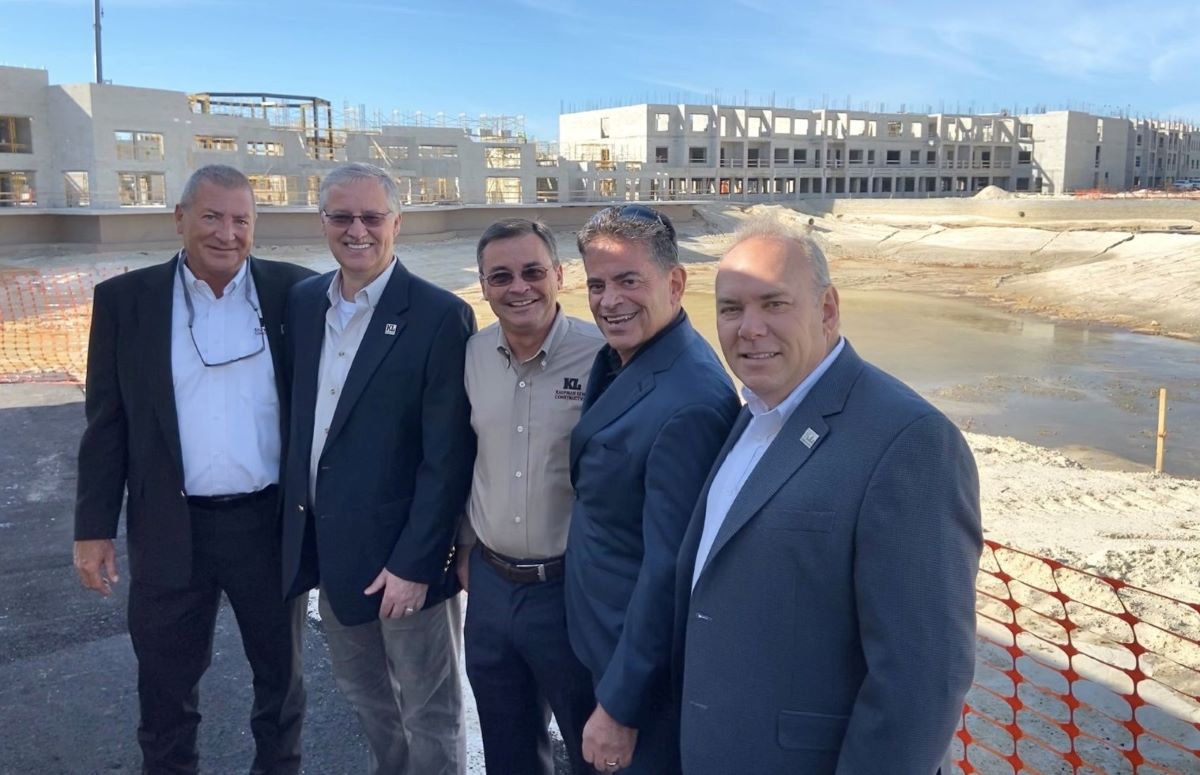
Kaufman Lynn’s reputation emerged in the firm’s winning the 2010 project to restore Miami’s historic Freedom Tower—a trophy win. Built in 1925, the tower’s current owner, Miami Dade College, hired Kaufman Lynn to provide a top-to-bottom restoration of the national historic landmark that included the exterior and interior of the building.
“Due to the requirement to preserve the historic integrity of the building, we had to refabricate the construction materials to match the [building’s] original elements,” Kaufman said.
The restoration covered 90,000 square feet, including art galleries and a ballroom. The completed project won recognition from Engineering News-Record as the best renovation/restoration project in the country in 2013. Such accolades have won Kaufman Lynn business- and revenue-expanding projects like the $150-million expansion of automotive giant J.M. Family Enterprises’ Deerfield Beach campus.
“Succeeding over 30 years isn’t easy,” Kaufman said. “It requires strong talent, solid relationships, a continual focus on safety, and a commitment to customer satisfaction on every project, whether large or small.”
Reflecting on how his company has come so far in three decades and how he has survived the ups and downs of markets, Kaufman said, “Construction isn’t for the faint of heart. To survive and excel, you must know your numbers, be prepared for economic upheaval and never compromise your integrity.”

